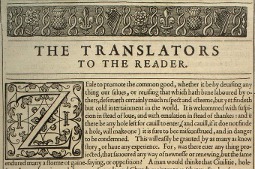My Facebook Account

The IPO (initial public offering) of Facebook stock has not gone as planned. The market value of the shares turned out to be substantially beneath what the owners had hoped and believed. Worse, the value of those shares continues to decline rather than to increase. As I am writing, some pundits are discussing the possibility that the social media site might just die, and a few are even wondering whether its passing will kill the so-called “tech bubble.”
The prospect of a world without Facebook is one that I can face with equanimity. In fact, I have already dealt with this issue. Some months back, I canceled my Facebook account. I have not missed it.
To be fair, I should confess that I was never one of Facebook’s most avid users. When I had an account, I would go weeks and sometimes months without logging in to see whether I had any messages or if someone had written on my wall. I routinely deleted any email notices that came from Facebook. To me, the whole thing was more a bother and even an annoyance than anything.
Not that I didn’t have friends. Quite the contrary. I was being followed by hundreds (or was it thousands?) of people whom I did not know and would not have recognized if I had met them on the street. In fact, looking at my list of friends became a weird experience as I found myself wondering, “Who are these people and why are they watching me?”
Sure, I could have dropped them from the list. In fact, I could have rejected their friend requests at the outset. But that always seemed rude, like answering the phone and then just hanging up.
Discussion
Who knew? "Vacation Bible schools have agenda beyond free babysitting"
Body
Discussion
A new generation of snake handlers take up "death in that box"
Body
Discussion
"How would it feel to replace an influential preacher like John Piper in the pulpit?"
Body
Discussion
The Preface, Part 5: Is it Really an Embarrassment to the KJVO Movement?
 Republished with permission from Theologically Driven. (See also: previous installments in this series.)
Republished with permission from Theologically Driven. (See also: previous installments in this series.)
The Federalist Papers are a series of 85 essays supporting the ratification of the United States Constitution, written by Alexander Hamilton, James Madison, and John Jay. Madison himself is commonly known as the Father of the Constitution. Federal judges, when interpreting the Constitution, frequently appeal to the Federalist Papers as a contemporary account of the intentions of the authors.
In a recent Wall Street Journal article, Peter Berkowitz observes:
Most astonishing and most revealing is the neglect of The Federalist by graduate schools and law schools. The political science departments at Harvard, Yale, Princeton, Stanford and Berkeley—which set the tone for higher education throughout the nation and train many of the next generation’s professors—do not require candidates for the Ph.D. to study The Federalist.
I think there may be a parallel with the Preface to the King James Version, The Translators to the Reader. If one wishes to understand the KJV, the purposes and intents of the translators themselves, the Preface is the authoritative source. And what it reveals is the exact opposite of the claims made for the KJV by those in the KJV-only movement. The KJV-only position argues that only the KJV is the perfect Word of God without any error. It is no wonder, then, that KJV-only advocates purposely avoid the Preface since it is an embarrassment to their false claims.
Discussion